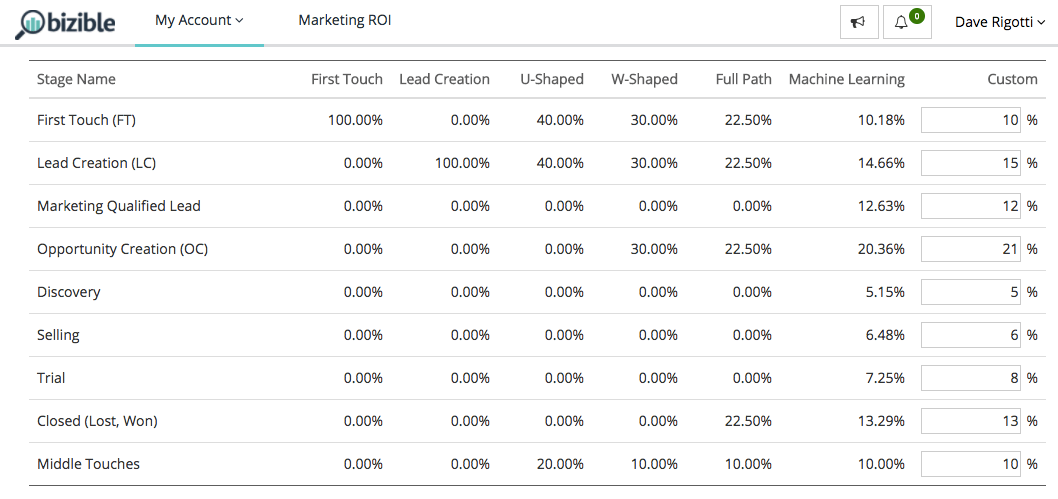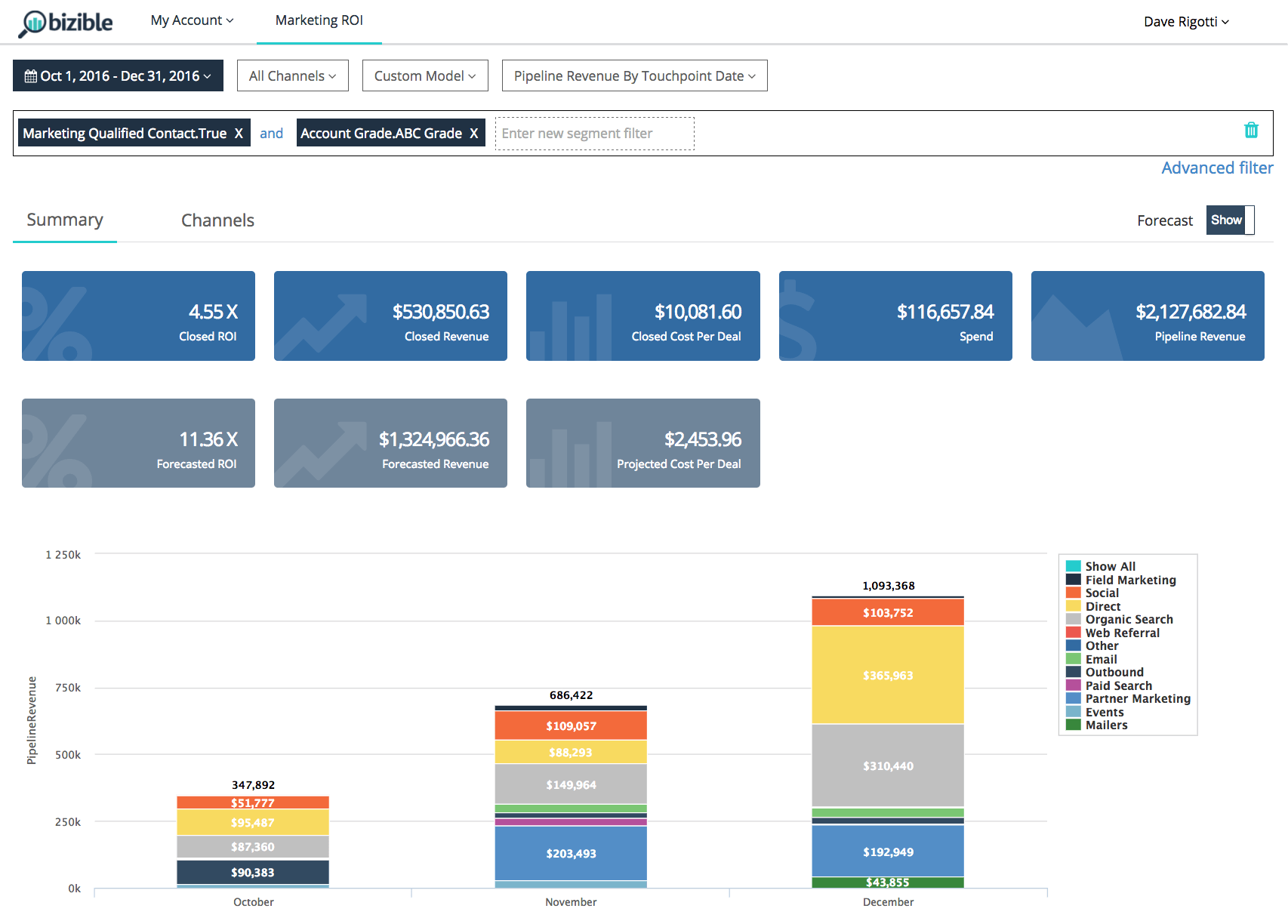Machine learning is starting to infiltrate all areas of marketing technology, and that’s probably a good thing. There are hundreds of high-waste, menial tasks that can be handled better by machines, leaving marketers to do what they do best.
But when it comes to proving that what you’re doing is working, you have to know how best to measure your efforts and where to attribute success. In the B2B world, that means knowing — across a long sales cycle — to what degree the trade show visit, email reminder, case study, demo, or webinar affected the sale so that you know where to spend more money.
Enter Bizible, an attribution solution that looks at all data sources — CRM systems, ad networks, website data, and business intelligence products, to name a few — to determine which part of your sales and marketing process had an impact on revenue. Today, the company announced it has added custom attribution modeling, powered by machine learning, to help make these calculations as accurate as possible.
“Attribution modeling is very different depending on the type of business you operate,” Aaron Bird, CEO at Bizible, told me. “In B2C, we’re talking about TV, Facebook, and advertising. B2B is all about events, outbound calling, and steak dinners! The sales cycles are longer — as little as a couple of months up to a couple of years.”
Bizible offers several out-of-the-box attribution models. The idea is the same as it ever was — divide credit for conversion among the different sales and marketing actions that affected the purchase. For most businesses, especially in B2B companies, this means weighting each part of the process based on expected impact.
That’s where machine learning comes into play. Custom attribution models aren’t new, but Bizible has launched what it says is the first self-service custom service for B2B companies that uses machine learning to suggest the best weighting percentages.
The system is flexible enough to offer the marketer five standard attribution models (including first touch, U-shaped, W-shaped, and full path), but it also shows what the machine learning engine suggests based on combing through all your sales and marketing data. The marketer can then accept or modify those recommendations — a nice touch for those of us who fear the machines are taking over — and it’s important to be able to override. Attribution weighting is an art, and machines can still get the percentages wrong when you run discounts and sales, because price trumps everything and causes unnatural variants in attribution models.
As far as implementation is concerned, the solution is self-service and links with almost any data source.
“We can connect to pretty much any sales and marketing system the customer is using,” Bird said. “We have our own web analytics tag, we connect to the ad platforms themselves, CRM systems, and other revenue and sales pipeline data solutions.”
That includes phone systems for outbound or inbound call measurement, which does somewhat target Bizible’s solution toward a particular segment of the B2B world.
“We sell into the mid-market and enterprise,” Bird said, “20 to 50 person companies aren’t a good fit for Bizible. Once you get to scale, you simply have to measure sales activities. Typically, our customers have some automated way of logging interactions such as outbound calls, expenses (for those steak dinners), and other offline interactions.”
Integration and support for connecting services are built into the SaaS charge.
Bizible’s new machine learning-powered customer attribution solution is available from today.
VentureBeat's mission is to be a digital town square for technical decision-makers to gain knowledge about transformative enterprise technology and transact. Learn More



